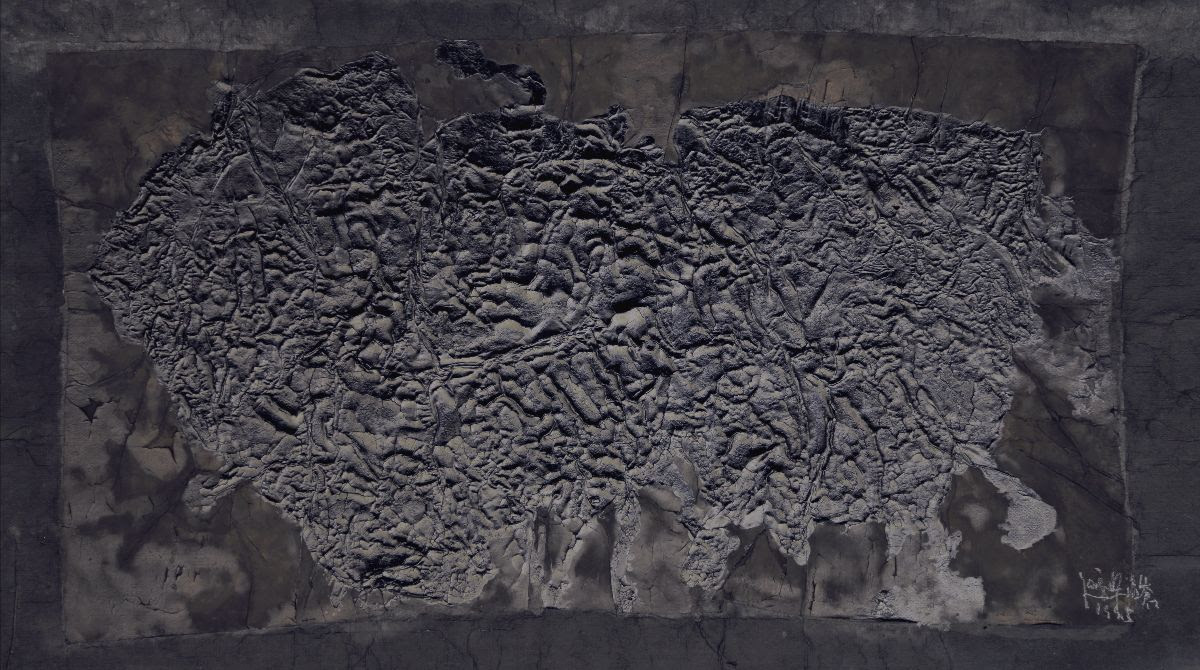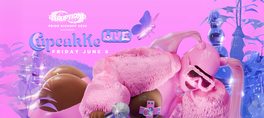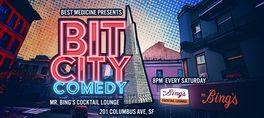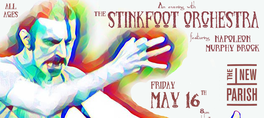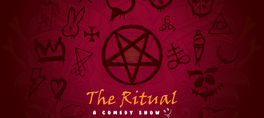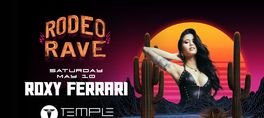Qualia Contemporary Art is pleased to announce Beyond Ink, a group exhibition of contemporary ink art curated by Xiaoze Xie. Works by artists Yang Jiechang, Zhang Yu, Zheng Chongbin, and Wang Tiande will present a wide and varied scope of contemporary works that explore the materiality, history, and potential of ink as an artistic medium. The performative application of ink, the time-based process of meditative mark-making, and the sculptural dimension of the material are revealed in each artist's work, and in the dialogues between them.
Curator Xiaoze Xie writes, "Thirty years after leaving China, I stand before the work of these artists in the United States, where they are thoroughly recontextualized, and I am deeply fascinated by the sense of strangeness accompanying the shift in time and space. The four artists I selected for this exhibition, Yang Jiechang (b. 1956), Zhang Yu (b. 1957), Wang Tiande (b. 1960) and Zheng Chongbin (b. 1961), have been experimenting with ink painting since the 1980s. I cannot and do not intend to conduct an art historical analysis of Chinese experimental ink painting, nor can I discuss comprehensively the rich oeuvres of each artist. This dialogue may be incomplete, subjective, and at times, discursive. However, it is not intended to function as a summary judgment but rather as an exchange of ideas and experiences between practitioners."
Beyond Ink will be open to the public from May 28 - July 15, 2022, with an opening celebration hosted on May 28 from 4pm - 7pm.
Providing context for this exhibition, curator Xiaoze Xie states: "Traditional ink painting carries the weight of the accumulated history of painting and calligraphy in China, if not in all of Asia, articulating its profound philosophical roots, cultural significance, and aesthetic characteristics, and thereby, occupies a monumental space in Asian art and public cultural consciousness. As modern and contemporary art has diversified, developed, and drastically changed, ink painting has remained a topic of lively debate and a medium that oscillates between tradition and innovation. Infatuation with, or rebellion against, the aesthetic inertia of ink painting has shaped the development of Chinese contemporary art, a complex dynamic that confronts almost every Chinese artist."
The exhibition title, Beyond Ink, reflects the curator's emphasis on artists working with ink in innovative and unconventional ways -- beyond traditional ink painting, but beyond modern ink painting as well. While Yang Jiechang (b. 1956), Zhang Yu (b. 1957), Wang Tiande (b. 1960), and Zheng Chongbin (b. 1961) come from the same generation of artists and are unified by their shared Chinese heritage, these commonalities make the breadth of their collective work all the more significant. Despite the similarity of the artists' origins, the differences between their respective practices underscore the unique capacity of ink to serve as a performative, documentary, sculptural, and/or time-based medium in the hands of each artist.
Yang Jiechang's "Hundred Layers of Ink" appears in various books on Chinese contemporary art, and has become a paradigmatic work in the field. Viewed in person, the thick and monochromatic surface reflects a muted, cool light, reminiscent of a mysterious ore dug out of the ground, or the raw graphite left behind melted down pencils; the meridians extend vertically and horizontally, like sediment on the floor of a dried out ocean of ink. The transparent, subtle, and lyrical beauty of traditional ink and wash is lost in this work, but what remains is ink presented as object, an object that whispers solemn poetry evoking a sense of death. He is well versed in the medium of brush and ink, and fluent in traditional Chinese painting and calligraphy theory, but the "Hundred Layers of Ink" series is an experiment in abandoning his academic training. He does not leave any visible negative space but instead fills those spaces with layers of ink until all traditional elements are subsumed in the blackness. The anatomy of influences on Yang Jiechang blends elements from traditional Chinese culture and Western modernism.
Zhang Yu's works are rooted in the concept of abandonment, as expressed by Chinese philosopher Laozi, "in pursuit of the Way, actions are reduced daily." It is through the process of abandonment that Zhang brings himself closer to the core of Chinese philosophy. He abandons the "brush" as writing implement, lines as subject, and instead uses the techniques of rubbing, smearing, and spraying to create meditative spaces in which to contemplate the majesty of the cosmos. In the "Fingerprints" series, Zhang not only abandons brushwork, but the brush itself, replacing it with his fingers, and using them to generate works that evoke the symbiotic relationship between the physical, the mental, and the temporal. In some of the works, the artist forgoes the medium of ink entirely; he dips his fingers in water and leaves subtle, uneven marks on the surface of the rice paper. Each "fingerprint" work is composed with no clear beginning or end and serves as a record of Zhang Yu's Zen-like self-cultivation, as an imprint to register a particular period in his life.
Like the other artists whose work features in this exhibition, Wang Tiande is one of the most important experimental ink artists in China. Traditional themes and media are visible in his works: landscapes, calligraphy, stele rubbings, and album paintings. The remote and muted qualities of traditional Chinese paintings are palpable, but Wang does not intend to fully "return to tradition". Wang Tiande layers sheets of paper atop one another, inscribes the bottom sheet with calligraphy or landscape in ink, and burns the transparent top sheet with incense to form multi-layered compositions and achieve subtle visual effects. The hollowed-out images and words formed in the process of burning rice paper evoke a kind of absence, a disappearing cultural memory; every element in his work is obfuscated. A chasm forms between the past and the time and space in which we live as tradition is pushed into the dark depths of our memory.
Zheng Chongbin is the only one of the four exhibitors who received formal training in Western contemporary art. Although Zheng is famous for his abstract ink and acrylic paintings on xuan paper and is dedicated to traditional media, his artistic vision is broad and multicultural. His work reveals the influence of global contemporary art. Zheng conducts extensive experiments with materials, scale, space, and techniques, with a remarkably open mind and dynamism. He employs ink and acrylic to create rich textural effects reminiscent of snow and water, forests and stones, intending to represent unpredictable forces of nature. Zheng disassembles and reassembles various elements, allowing them to intersperse, collide, and layer. He juxtaposes and contrasts artificial geometric forms with natural visual elements, forming varied complex structures, each bearing a unique visual character. In recent years, Zheng Chongbin has boldly contributed to the discourse of contemporary culture--expanding his artistic vocabulary, fusing the flow of nature with the solidity of architecture, mediating space and light, and exploring fundamental issues of vision and perception and the various relationships among humans, nature, environment, and technology.
The selected artists in Beyond Ink are not interested in conforming to the well-worn comforts of established ink painting traditions, nor are they concerned with the lyricism, serendipity, and delicate handling that characterizes the majority of ink art, new and old. Beyond Ink exemplifies the experimentation and revitalization of a storied medium rife with meaning, through the expansive work of four contemporary artists.
Image Credit: Yang Jiechang, Hundred Layers of Ink - Palo Alto # 02, 1995.
Ink on Xuan paper, mounted on canvas, 33 x 60 cm. Photo by Felicitas Yang.
show less
Curator Xiaoze Xie writes, "Thirty years after leaving China, I stand before the work of these artists in the United States, where they are thoroughly recontextualized, and I am deeply fascinated by the sense of strangeness accompanying the shift in time and space. The four artists I selected for this exhibition, Yang Jiechang (b. 1956), Zhang Yu (b. 1957), Wang Tiande (b. 1960) and Zheng Chongbin (b. 1961), have been experimenting with ink painting since the 1980s. I cannot and do not intend to conduct an art historical analysis of Chinese experimental ink painting, nor can I discuss comprehensively the rich oeuvres of each artist. This dialogue may be incomplete, subjective, and at times, discursive. However, it is not intended to function as a summary judgment but rather as an exchange of ideas and experiences between practitioners."
Beyond Ink will be open to the public from May 28 - July 15, 2022, with an opening celebration hosted on May 28 from 4pm - 7pm.
Providing context for this exhibition, curator Xiaoze Xie states: "Traditional ink painting carries the weight of the accumulated history of painting and calligraphy in China, if not in all of Asia, articulating its profound philosophical roots, cultural significance, and aesthetic characteristics, and thereby, occupies a monumental space in Asian art and public cultural consciousness. As modern and contemporary art has diversified, developed, and drastically changed, ink painting has remained a topic of lively debate and a medium that oscillates between tradition and innovation. Infatuation with, or rebellion against, the aesthetic inertia of ink painting has shaped the development of Chinese contemporary art, a complex dynamic that confronts almost every Chinese artist."
The exhibition title, Beyond Ink, reflects the curator's emphasis on artists working with ink in innovative and unconventional ways -- beyond traditional ink painting, but beyond modern ink painting as well. While Yang Jiechang (b. 1956), Zhang Yu (b. 1957), Wang Tiande (b. 1960), and Zheng Chongbin (b. 1961) come from the same generation of artists and are unified by their shared Chinese heritage, these commonalities make the breadth of their collective work all the more significant. Despite the similarity of the artists' origins, the differences between their respective practices underscore the unique capacity of ink to serve as a performative, documentary, sculptural, and/or time-based medium in the hands of each artist.
Yang Jiechang's "Hundred Layers of Ink" appears in various books on Chinese contemporary art, and has become a paradigmatic work in the field. Viewed in person, the thick and monochromatic surface reflects a muted, cool light, reminiscent of a mysterious ore dug out of the ground, or the raw graphite left behind melted down pencils; the meridians extend vertically and horizontally, like sediment on the floor of a dried out ocean of ink. The transparent, subtle, and lyrical beauty of traditional ink and wash is lost in this work, but what remains is ink presented as object, an object that whispers solemn poetry evoking a sense of death. He is well versed in the medium of brush and ink, and fluent in traditional Chinese painting and calligraphy theory, but the "Hundred Layers of Ink" series is an experiment in abandoning his academic training. He does not leave any visible negative space but instead fills those spaces with layers of ink until all traditional elements are subsumed in the blackness. The anatomy of influences on Yang Jiechang blends elements from traditional Chinese culture and Western modernism.
Zhang Yu's works are rooted in the concept of abandonment, as expressed by Chinese philosopher Laozi, "in pursuit of the Way, actions are reduced daily." It is through the process of abandonment that Zhang brings himself closer to the core of Chinese philosophy. He abandons the "brush" as writing implement, lines as subject, and instead uses the techniques of rubbing, smearing, and spraying to create meditative spaces in which to contemplate the majesty of the cosmos. In the "Fingerprints" series, Zhang not only abandons brushwork, but the brush itself, replacing it with his fingers, and using them to generate works that evoke the symbiotic relationship between the physical, the mental, and the temporal. In some of the works, the artist forgoes the medium of ink entirely; he dips his fingers in water and leaves subtle, uneven marks on the surface of the rice paper. Each "fingerprint" work is composed with no clear beginning or end and serves as a record of Zhang Yu's Zen-like self-cultivation, as an imprint to register a particular period in his life.
Like the other artists whose work features in this exhibition, Wang Tiande is one of the most important experimental ink artists in China. Traditional themes and media are visible in his works: landscapes, calligraphy, stele rubbings, and album paintings. The remote and muted qualities of traditional Chinese paintings are palpable, but Wang does not intend to fully "return to tradition". Wang Tiande layers sheets of paper atop one another, inscribes the bottom sheet with calligraphy or landscape in ink, and burns the transparent top sheet with incense to form multi-layered compositions and achieve subtle visual effects. The hollowed-out images and words formed in the process of burning rice paper evoke a kind of absence, a disappearing cultural memory; every element in his work is obfuscated. A chasm forms between the past and the time and space in which we live as tradition is pushed into the dark depths of our memory.
Zheng Chongbin is the only one of the four exhibitors who received formal training in Western contemporary art. Although Zheng is famous for his abstract ink and acrylic paintings on xuan paper and is dedicated to traditional media, his artistic vision is broad and multicultural. His work reveals the influence of global contemporary art. Zheng conducts extensive experiments with materials, scale, space, and techniques, with a remarkably open mind and dynamism. He employs ink and acrylic to create rich textural effects reminiscent of snow and water, forests and stones, intending to represent unpredictable forces of nature. Zheng disassembles and reassembles various elements, allowing them to intersperse, collide, and layer. He juxtaposes and contrasts artificial geometric forms with natural visual elements, forming varied complex structures, each bearing a unique visual character. In recent years, Zheng Chongbin has boldly contributed to the discourse of contemporary culture--expanding his artistic vocabulary, fusing the flow of nature with the solidity of architecture, mediating space and light, and exploring fundamental issues of vision and perception and the various relationships among humans, nature, environment, and technology.
The selected artists in Beyond Ink are not interested in conforming to the well-worn comforts of established ink painting traditions, nor are they concerned with the lyricism, serendipity, and delicate handling that characterizes the majority of ink art, new and old. Beyond Ink exemplifies the experimentation and revitalization of a storied medium rife with meaning, through the expansive work of four contemporary artists.
Image Credit: Yang Jiechang, Hundred Layers of Ink - Palo Alto # 02, 1995.
Ink on Xuan paper, mounted on canvas, 33 x 60 cm. Photo by Felicitas Yang.
Qualia Contemporary Art is pleased to announce Beyond Ink, a group exhibition of contemporary ink art curated by Xiaoze Xie. Works by artists Yang Jiechang, Zhang Yu, Zheng Chongbin, and Wang Tiande will present a wide and varied scope of contemporary works that explore the materiality, history, and potential of ink as an artistic medium. The performative application of ink, the time-based process of meditative mark-making, and the sculptural dimension of the material are revealed in each artist's work, and in the dialogues between them.
Curator Xiaoze Xie writes, "Thirty years after leaving China, I stand before the work of these artists in the United States, where they are thoroughly recontextualized, and I am deeply fascinated by the sense of strangeness accompanying the shift in time and space. The four artists I selected for this exhibition, Yang Jiechang (b. 1956), Zhang Yu (b. 1957), Wang Tiande (b. 1960) and Zheng Chongbin (b. 1961), have been experimenting with ink painting since the 1980s. I cannot and do not intend to conduct an art historical analysis of Chinese experimental ink painting, nor can I discuss comprehensively the rich oeuvres of each artist. This dialogue may be incomplete, subjective, and at times, discursive. However, it is not intended to function as a summary judgment but rather as an exchange of ideas and experiences between practitioners."
Beyond Ink will be open to the public from May 28 - July 15, 2022, with an opening celebration hosted on May 28 from 4pm - 7pm.
Providing context for this exhibition, curator Xiaoze Xie states: "Traditional ink painting carries the weight of the accumulated history of painting and calligraphy in China, if not in all of Asia, articulating its profound philosophical roots, cultural significance, and aesthetic characteristics, and thereby, occupies a monumental space in Asian art and public cultural consciousness. As modern and contemporary art has diversified, developed, and drastically changed, ink painting has remained a topic of lively debate and a medium that oscillates between tradition and innovation. Infatuation with, or rebellion against, the aesthetic inertia of ink painting has shaped the development of Chinese contemporary art, a complex dynamic that confronts almost every Chinese artist."
The exhibition title, Beyond Ink, reflects the curator's emphasis on artists working with ink in innovative and unconventional ways -- beyond traditional ink painting, but beyond modern ink painting as well. While Yang Jiechang (b. 1956), Zhang Yu (b. 1957), Wang Tiande (b. 1960), and Zheng Chongbin (b. 1961) come from the same generation of artists and are unified by their shared Chinese heritage, these commonalities make the breadth of their collective work all the more significant. Despite the similarity of the artists' origins, the differences between their respective practices underscore the unique capacity of ink to serve as a performative, documentary, sculptural, and/or time-based medium in the hands of each artist.
Yang Jiechang's "Hundred Layers of Ink" appears in various books on Chinese contemporary art, and has become a paradigmatic work in the field. Viewed in person, the thick and monochromatic surface reflects a muted, cool light, reminiscent of a mysterious ore dug out of the ground, or the raw graphite left behind melted down pencils; the meridians extend vertically and horizontally, like sediment on the floor of a dried out ocean of ink. The transparent, subtle, and lyrical beauty of traditional ink and wash is lost in this work, but what remains is ink presented as object, an object that whispers solemn poetry evoking a sense of death. He is well versed in the medium of brush and ink, and fluent in traditional Chinese painting and calligraphy theory, but the "Hundred Layers of Ink" series is an experiment in abandoning his academic training. He does not leave any visible negative space but instead fills those spaces with layers of ink until all traditional elements are subsumed in the blackness. The anatomy of influences on Yang Jiechang blends elements from traditional Chinese culture and Western modernism.
Zhang Yu's works are rooted in the concept of abandonment, as expressed by Chinese philosopher Laozi, "in pursuit of the Way, actions are reduced daily." It is through the process of abandonment that Zhang brings himself closer to the core of Chinese philosophy. He abandons the "brush" as writing implement, lines as subject, and instead uses the techniques of rubbing, smearing, and spraying to create meditative spaces in which to contemplate the majesty of the cosmos. In the "Fingerprints" series, Zhang not only abandons brushwork, but the brush itself, replacing it with his fingers, and using them to generate works that evoke the symbiotic relationship between the physical, the mental, and the temporal. In some of the works, the artist forgoes the medium of ink entirely; he dips his fingers in water and leaves subtle, uneven marks on the surface of the rice paper. Each "fingerprint" work is composed with no clear beginning or end and serves as a record of Zhang Yu's Zen-like self-cultivation, as an imprint to register a particular period in his life.
Like the other artists whose work features in this exhibition, Wang Tiande is one of the most important experimental ink artists in China. Traditional themes and media are visible in his works: landscapes, calligraphy, stele rubbings, and album paintings. The remote and muted qualities of traditional Chinese paintings are palpable, but Wang does not intend to fully "return to tradition". Wang Tiande layers sheets of paper atop one another, inscribes the bottom sheet with calligraphy or landscape in ink, and burns the transparent top sheet with incense to form multi-layered compositions and achieve subtle visual effects. The hollowed-out images and words formed in the process of burning rice paper evoke a kind of absence, a disappearing cultural memory; every element in his work is obfuscated. A chasm forms between the past and the time and space in which we live as tradition is pushed into the dark depths of our memory.
Zheng Chongbin is the only one of the four exhibitors who received formal training in Western contemporary art. Although Zheng is famous for his abstract ink and acrylic paintings on xuan paper and is dedicated to traditional media, his artistic vision is broad and multicultural. His work reveals the influence of global contemporary art. Zheng conducts extensive experiments with materials, scale, space, and techniques, with a remarkably open mind and dynamism. He employs ink and acrylic to create rich textural effects reminiscent of snow and water, forests and stones, intending to represent unpredictable forces of nature. Zheng disassembles and reassembles various elements, allowing them to intersperse, collide, and layer. He juxtaposes and contrasts artificial geometric forms with natural visual elements, forming varied complex structures, each bearing a unique visual character. In recent years, Zheng Chongbin has boldly contributed to the discourse of contemporary culture--expanding his artistic vocabulary, fusing the flow of nature with the solidity of architecture, mediating space and light, and exploring fundamental issues of vision and perception and the various relationships among humans, nature, environment, and technology.
The selected artists in Beyond Ink are not interested in conforming to the well-worn comforts of established ink painting traditions, nor are they concerned with the lyricism, serendipity, and delicate handling that characterizes the majority of ink art, new and old. Beyond Ink exemplifies the experimentation and revitalization of a storied medium rife with meaning, through the expansive work of four contemporary artists.
Image Credit: Yang Jiechang, Hundred Layers of Ink - Palo Alto # 02, 1995.
Ink on Xuan paper, mounted on canvas, 33 x 60 cm. Photo by Felicitas Yang.
read more
Curator Xiaoze Xie writes, "Thirty years after leaving China, I stand before the work of these artists in the United States, where they are thoroughly recontextualized, and I am deeply fascinated by the sense of strangeness accompanying the shift in time and space. The four artists I selected for this exhibition, Yang Jiechang (b. 1956), Zhang Yu (b. 1957), Wang Tiande (b. 1960) and Zheng Chongbin (b. 1961), have been experimenting with ink painting since the 1980s. I cannot and do not intend to conduct an art historical analysis of Chinese experimental ink painting, nor can I discuss comprehensively the rich oeuvres of each artist. This dialogue may be incomplete, subjective, and at times, discursive. However, it is not intended to function as a summary judgment but rather as an exchange of ideas and experiences between practitioners."
Beyond Ink will be open to the public from May 28 - July 15, 2022, with an opening celebration hosted on May 28 from 4pm - 7pm.
Providing context for this exhibition, curator Xiaoze Xie states: "Traditional ink painting carries the weight of the accumulated history of painting and calligraphy in China, if not in all of Asia, articulating its profound philosophical roots, cultural significance, and aesthetic characteristics, and thereby, occupies a monumental space in Asian art and public cultural consciousness. As modern and contemporary art has diversified, developed, and drastically changed, ink painting has remained a topic of lively debate and a medium that oscillates between tradition and innovation. Infatuation with, or rebellion against, the aesthetic inertia of ink painting has shaped the development of Chinese contemporary art, a complex dynamic that confronts almost every Chinese artist."
The exhibition title, Beyond Ink, reflects the curator's emphasis on artists working with ink in innovative and unconventional ways -- beyond traditional ink painting, but beyond modern ink painting as well. While Yang Jiechang (b. 1956), Zhang Yu (b. 1957), Wang Tiande (b. 1960), and Zheng Chongbin (b. 1961) come from the same generation of artists and are unified by their shared Chinese heritage, these commonalities make the breadth of their collective work all the more significant. Despite the similarity of the artists' origins, the differences between their respective practices underscore the unique capacity of ink to serve as a performative, documentary, sculptural, and/or time-based medium in the hands of each artist.
Yang Jiechang's "Hundred Layers of Ink" appears in various books on Chinese contemporary art, and has become a paradigmatic work in the field. Viewed in person, the thick and monochromatic surface reflects a muted, cool light, reminiscent of a mysterious ore dug out of the ground, or the raw graphite left behind melted down pencils; the meridians extend vertically and horizontally, like sediment on the floor of a dried out ocean of ink. The transparent, subtle, and lyrical beauty of traditional ink and wash is lost in this work, but what remains is ink presented as object, an object that whispers solemn poetry evoking a sense of death. He is well versed in the medium of brush and ink, and fluent in traditional Chinese painting and calligraphy theory, but the "Hundred Layers of Ink" series is an experiment in abandoning his academic training. He does not leave any visible negative space but instead fills those spaces with layers of ink until all traditional elements are subsumed in the blackness. The anatomy of influences on Yang Jiechang blends elements from traditional Chinese culture and Western modernism.
Zhang Yu's works are rooted in the concept of abandonment, as expressed by Chinese philosopher Laozi, "in pursuit of the Way, actions are reduced daily." It is through the process of abandonment that Zhang brings himself closer to the core of Chinese philosophy. He abandons the "brush" as writing implement, lines as subject, and instead uses the techniques of rubbing, smearing, and spraying to create meditative spaces in which to contemplate the majesty of the cosmos. In the "Fingerprints" series, Zhang not only abandons brushwork, but the brush itself, replacing it with his fingers, and using them to generate works that evoke the symbiotic relationship between the physical, the mental, and the temporal. In some of the works, the artist forgoes the medium of ink entirely; he dips his fingers in water and leaves subtle, uneven marks on the surface of the rice paper. Each "fingerprint" work is composed with no clear beginning or end and serves as a record of Zhang Yu's Zen-like self-cultivation, as an imprint to register a particular period in his life.
Like the other artists whose work features in this exhibition, Wang Tiande is one of the most important experimental ink artists in China. Traditional themes and media are visible in his works: landscapes, calligraphy, stele rubbings, and album paintings. The remote and muted qualities of traditional Chinese paintings are palpable, but Wang does not intend to fully "return to tradition". Wang Tiande layers sheets of paper atop one another, inscribes the bottom sheet with calligraphy or landscape in ink, and burns the transparent top sheet with incense to form multi-layered compositions and achieve subtle visual effects. The hollowed-out images and words formed in the process of burning rice paper evoke a kind of absence, a disappearing cultural memory; every element in his work is obfuscated. A chasm forms between the past and the time and space in which we live as tradition is pushed into the dark depths of our memory.
Zheng Chongbin is the only one of the four exhibitors who received formal training in Western contemporary art. Although Zheng is famous for his abstract ink and acrylic paintings on xuan paper and is dedicated to traditional media, his artistic vision is broad and multicultural. His work reveals the influence of global contemporary art. Zheng conducts extensive experiments with materials, scale, space, and techniques, with a remarkably open mind and dynamism. He employs ink and acrylic to create rich textural effects reminiscent of snow and water, forests and stones, intending to represent unpredictable forces of nature. Zheng disassembles and reassembles various elements, allowing them to intersperse, collide, and layer. He juxtaposes and contrasts artificial geometric forms with natural visual elements, forming varied complex structures, each bearing a unique visual character. In recent years, Zheng Chongbin has boldly contributed to the discourse of contemporary culture--expanding his artistic vocabulary, fusing the flow of nature with the solidity of architecture, mediating space and light, and exploring fundamental issues of vision and perception and the various relationships among humans, nature, environment, and technology.
The selected artists in Beyond Ink are not interested in conforming to the well-worn comforts of established ink painting traditions, nor are they concerned with the lyricism, serendipity, and delicate handling that characterizes the majority of ink art, new and old. Beyond Ink exemplifies the experimentation and revitalization of a storied medium rife with meaning, through the expansive work of four contemporary artists.
Image Credit: Yang Jiechang, Hundred Layers of Ink - Palo Alto # 02, 1995.
Ink on Xuan paper, mounted on canvas, 33 x 60 cm. Photo by Felicitas Yang.
show less
Date/Times:
328 University Avenue, Palo Alto, CA 94301
The Best Events
Every Week in Your Inbox
From Our Sponsors
UPCOMING EVENTS
Great suggestion! We'll be in touch.
Event reviewed successfully.
